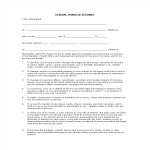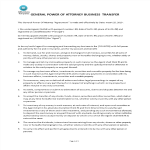Child Guardianship Form

Guardar, completar los espacios en blanco, imprimir, listo!
How to create a Child Guardianship Form? Download this Child Guardianship Form template now!
Formatos de archivo disponibles:
.pdf- Este documento ha sido certificado por un profesionall
- 100% personalizable
Business Negocio Legal Jurídico Parent Padre minor menor Forms Formulario Guardian guardián Sample Guardianship Forms Ejemplos de formularios de tutela parental consent form formulario de consentimiento de los padres guardianship form legal guardianship template child custody form guardianship agreement minor guardianship paperwork free guardianship forms court approved guardianship template custody and guardianship documents notarized guardianship form legal forms for child custody guardianship form pdf editable guardianship agreement temporary guardianship template minor child guardianship custodial guardianship form legal documents for child guardianship guardianship form for minors printable guardianship papers family law forms
How to draft a Child Guardianship Form?
A guardianship is a legal arrangement where an individual, known as the guardian, is appointed to make personal, financial, and legal decisions on behalf of another person, known as the ward, who is unable to make these decisions independently. Guardianships are typically established to protect individuals who are minors, incapacitated, or otherwise deemed incapable of managing their affairs.
There are different types of guardianships, and the extent of the guardian's authority can vary based on the specific circumstances and legal provisions. Some common types of guardianships include:
- Guardianship of Minors: Appointed for children under the age of 18 when their parents are unable to provide care or make decisions.
- Guardianship of Incapacitated Adults: Appointed for adults who are mentally or physically incapacitated and unable to make decisions for themselves.
- Limited Guardianship: Grants the guardian specific powers and limits their authority to certain aspects of the ward's life.
- Temporary Guardianship: Appointed for a specific period, often in emergency situations.
The guardian is legally obligated to act in the best interests of the ward, making decisions related to healthcare, education, finances, and other important aspects of their life. The establishment of a guardianship usually involves a court process where the need for guardianship is assessed, and the appointed guardian is granted authority by the court.
This comprehensive Guardianship Form Sample and guide to understanding the guardianship process for minors participating in our programs. If you have additional questions or unique circumstances, feel free to reach out.
1. Why designate more than one guardian for a child?
Parents are encouraged to designate multiple guardians to ensure flexibility. If one guardian is unable to accompany the minor due to illness or other reasons, another designated adult can still supervise the minor during activities.
2. Why can’t one person be the sole guardian for each minor?
For safety reasons, the designated guardian must stay with the minor at all times. If a guardian is responsible for a group of minors and one falls ill, the guardian must stay back with that minor. Designating multiple guardians allows for greater flexibility.
3. What if I am bringing a large group of minors?
For large groups, parents can designate all adult leaders as guardians for their child. There is no limit to the number of designated guardians on the form. Each student's form can include the names of all adult leaders responsible for them.
4. What if Mom and Dad are divorced with sole custody?
If one parent has sole custody, the other parent is not required to complete the guardianship form. Evidence of sole custody must be presented to the notary, and the guardian should carry a copy while traveling.
5. What if Mom and Dad share custody after divorce?
In such cases, both parents must complete the guardianship form and be present during notarization. Even if one parent lives in another state, both must participate in the notary process.
6. What if the minor is adopted or lives with legal guardians other than parents?
For adopted minors, adoptive parents complete the form, providing evidence of legal adoption. If a minor lives with legal guardians, they can complete the form, presenting evidence of legal guardianship.
7. What if one or both parents are deceased?
If one parent is deceased, the living parent must fill out the form and provide the deceased parent's death certificate. If both parents are deceased, the legal guardian must complete the form, presenting both death certificates and evidence of legal guardianship.
8. The minor is a foster child.
Check with the placement agency.
9. The minor is a unique circumstance.
Feel free to download this Guardianship Form including instructions or to reach out for personalized assistance or if you have additional questions.
Guardianships are important legal tools designed to ensure the well-being and protection of individuals who are unable to advocate for themselves. However, the legal process is usually comprehensive, involving court oversight to prevent abuse and to safeguard the rights of the ward.
CHILD GUARDIAN CONSENT FORM I of , the current legal parent of (child s parent) (parent s city state) born on , hereby appoint (child s name) (child s date of birth) of as legal guardian for my child (guardian s name) (guardian s city and state) for the period of time beginning on and ending on .. Medical Authorization for Minors I, , the parent of or legal guardian of , a minor, do hereby authorize any one or more of , or , as agents for myself in my absence or incapacitation to consent to any x- ray examination and anesthetic, medical or surgical diagnosis or treat m e n t and medical care which is deeme d advisable by and is to be rendered under the general or special supervision of any physician or surgeon licensed under the provisions of the Medical Practice Act on the medical staff of any hospital whether or not such diagnosis or treat m en t is rendere d at the office of said physician or at said hospital.. Home State of Minors: Minor Legal Name : Birthdate: Minor Legal Name : Birthdate: Minor Legal Name : Birthdate: Minor Legal Name : Birthdate: Minor Legal Name : Birthdate: Parent / G ua r di a n Legal Name (PRINT):
DESCARGO DE RESPONSABILIDAD
Nada en este sitio se considerará asesoramiento legal y no se establece una relación abogado-cliente.
Deja una respuesta. Si tiene preguntas o comentarios, puede colocarlos a continuación.


